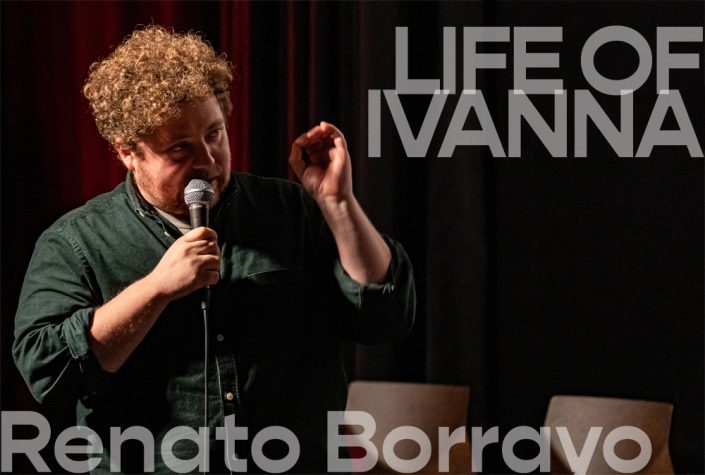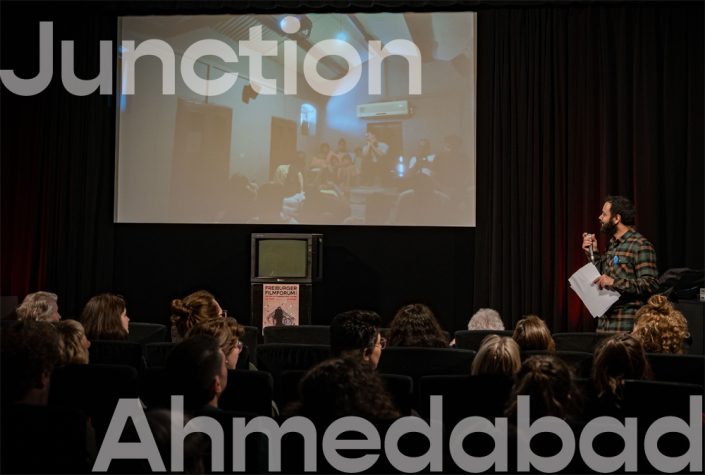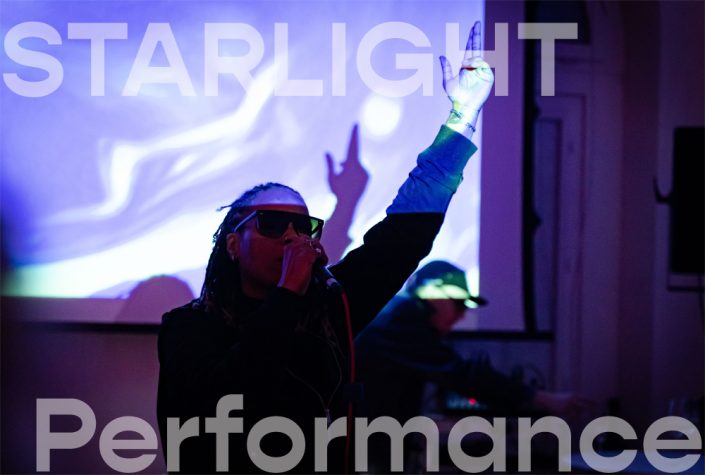No English translation available.
The iron ministry
P. Sniadecki, who lived in China for a long time and travelled all over the country by train, condensed the results of these ethnographic excursions into a multifarious and colorful film. The entire cosmos of this part of the world can be found in the troubles, stories, hopes, and expectations of people from all walks of life moving amidst heavy luggage, small children, strict railway conductors and chickens flying around. Outside is the vast, expansive foreign country. (Viennale)
“Sniadecki offers a formally controlled look at the range of classes, the implied changes wrought by China’s economic boom, and the interactions particular to train travel. Refreshingly, Sniadecki allows the film — or rather, some passengers — to engage in politics, from the rights of minorities to economic pressures. While cerebral in intent and planning, the pic doesn’t feel overly straitjacketed by theory and offers unexpected moments of amusement.” (Jay Weissberg, Variety)
“The train’s roar is a constant, interrupted by some amazing monologues and conversations: a young woman, work weary, musing about how nice it would be to do nothing than eat and sleep all day; a conversation about the particulars of Muslim life in the outer provinces, and a young boy’s dazzlingly nihilistic parody of a train conductor’s setting-off speech.” (filmmakermagazine.com)
Elephant´s Dream
After a lengthy and devastating civil war in the Democratic Republic of Congo (DRC), the capital city of Kinshasa is rebuilding. Through the eyes of three civic workers struggling to reconstruct the foundation of the city’s public services, we witness a tale of national transformation—at a snail’s pace. Driven by desperate ambition, postal worker Henriette faces a system defined by stagnation, even as she rises through its ranks. With ramshackle equipment, a firefighter is forced to watch as everything he helped build burns to the ground. Meanwhile, optimistic railway worker Simon stands guard over an unused rail station—unsure of what he is protecting. Their stories allow director Kristof Bilsen to offer a rare look at the DRC, filled with poetry and absurdity that is brimming with compassionate insight. Elephant’s Dream is a modern masterpiece that is not to be missed. - Eli Horwatt, Hotdocs
“The film is a lesson in resilience, devotion. An ode to the invincible obstinacy, full of poetry reflecting the after-effects of Mubutism – showing how in a disastrously governed, yet organized chaos, one’s mental hygiene manages to prevail.” (Baloji)
Iulian. A True Story
Iulian, an orphan boy living on the streets of Bucharest, is looking for his family. He finally finds a new one when he is an adult. The charismatic young man openly talks about his experiences in a Romanian orphanage, his struggles living on the streets, and his attempts to create an independent existence. His supporters are deeply touched by his open heart, his good manners, and his will to fight for an independent life in the urban jungle.
Abdo
Just like any teenager the young Egyptian Abdo is in search for his identity. One difference is, however, that his coming of age happens to be in the midst of the Egypt revolution: a time of bloody hostilities. Abdo finds his mission in street fights and soccer stadiums. On the Tahrir square he is a convinced revolutionist, while in the stadium he joins the worldwide ultra-movement. But what happens to the youthful striving for change when there is no point in anything, the revolution has come to an end and soccer is banned? Abdo also is an enthusiastic amateur film maker. His camera makes us witness streetfights as well as his everyday life, showing homeless people, underground travelers or garbage collectors. His video diary gives the viewer insight into Abdo’s life, who grows up in the turmoil of the revolution. The impact of the Arabic spring on his individual story exemplifies how
the radical changes in society affect his generation.
Gone
After China implemented its family planning policy, the population declined sharply. As a result of the construction boom in the 1960s, every Chinese village has an elementary school, and every larger town has at least one middle school, but there are less and less children in the schools. As the economy is rapidly changing the country, farmers are leaving their villages to earn a living in the city. Families, teachers, and students seem to disappear, leaving huge school buildings abandoned in the landscape. LI KAI tells the slowly evolving story of a family bitterly affected by the politics of this country. The camera always stays at eye level, revealing sensitive insights into a Chinese schoolchild’s life.
Fidelity
In Istanbul 2014, the young nurse Asli becomes a political opponent by chance when she spontaneously hides a protestor from a police crackdown during a political protest outside the hospital. She helps him to leave the hospital unseen without considering the consequences her solidarity might have on her calm and peaceful family life in one of Istanbul’s wealthier districts. When the police invade her private life, Asli faces the threat of a political system as well as the limits of her husband’s solidarity. SADAKAT is a fictional story about the still current question of personal and public responsibility and the limits of political resistance.
Bintou
“While I was doing research in Ouagadougou, Burkina Faso, for a film about the relationship between Africa and Europe, I became acquainted with the young dressmaker Bintou. She spent a lot of time with white expats and dreamed of a career in Europe. The closer I got to Bintou, the more I understood about her family background. She has a seven-year-old daughter, Christiane, born from a painful incident in her past. Christiane was raised at a children’s home, so Bintou could complete her apprenticeship. Bintou somehow managed to live her life and balance her work, her dream of a career, and taking care of her child on weekends – in everybody’s view, she was the sweet, young dressmaker, who was always happy, making non-expensive, lovely African clothes. I was fascinated by Bintou and the way she managed her life. I wanted to tell others about her story, about the society in Burkina Faso, and Bintou’s courage in dealing with all this. In spite of all the obstacles, she constantly works to achieve her dreams.” (Simone Catherina Gaul)
Little Short Film
This LITTLE SHORT FILM is an experimental auto-ethnographical animation based on a conversation between the director and her mother. The short film implicates European history, war and regret. LITTLE SHORT FILM was screened as part of the Chantal Akerman retrospective in London October 2014. (JW3)
The Backstage of Tradition
What is it like to grow up in a world that is on the verge of disappearing? Descending from a long line of actors in an ancient Indian theater tradition, the ten-year-old Sreehari searches for a stage on which to perform his art in a world that leaves tradition behind in its quest for modernization. THE BACKSTAGE OF TRADITION accompanies Sreehari, a young actor in the Kūṭiyāṭṭam tradition, the last living remnant of ancient Indian drama. In the temple, Sreehari encounters Kūṭiyāṭṭam as a visual sacrifice to the gods and as a ritual that only those of the actors’ caste are allowed to perform there. At home, we see him with his parents – both distinguished Kūṭiyāṭṭam performers. Backstage, in the secular theater constructed by his parents outside the temple walls, Sreehari witnesses the paradox of tradition: in order to keep a tradition alive, one has to change it. THE BACKSTAGE OF TRADITION is a story about how the transformations on and off the stage are transferred to a secular world. It is a story about the ultimate stage – the human face and its metamorphosis. (Augohr Medien)









